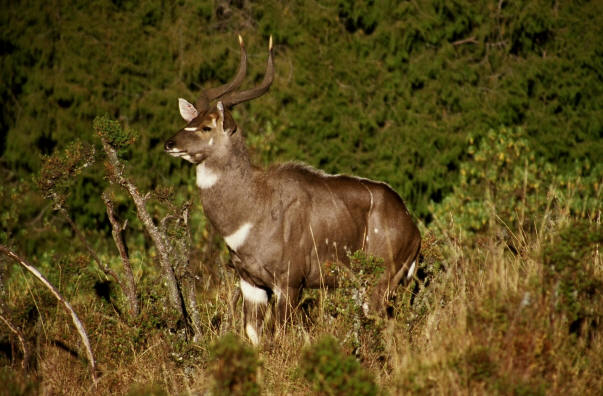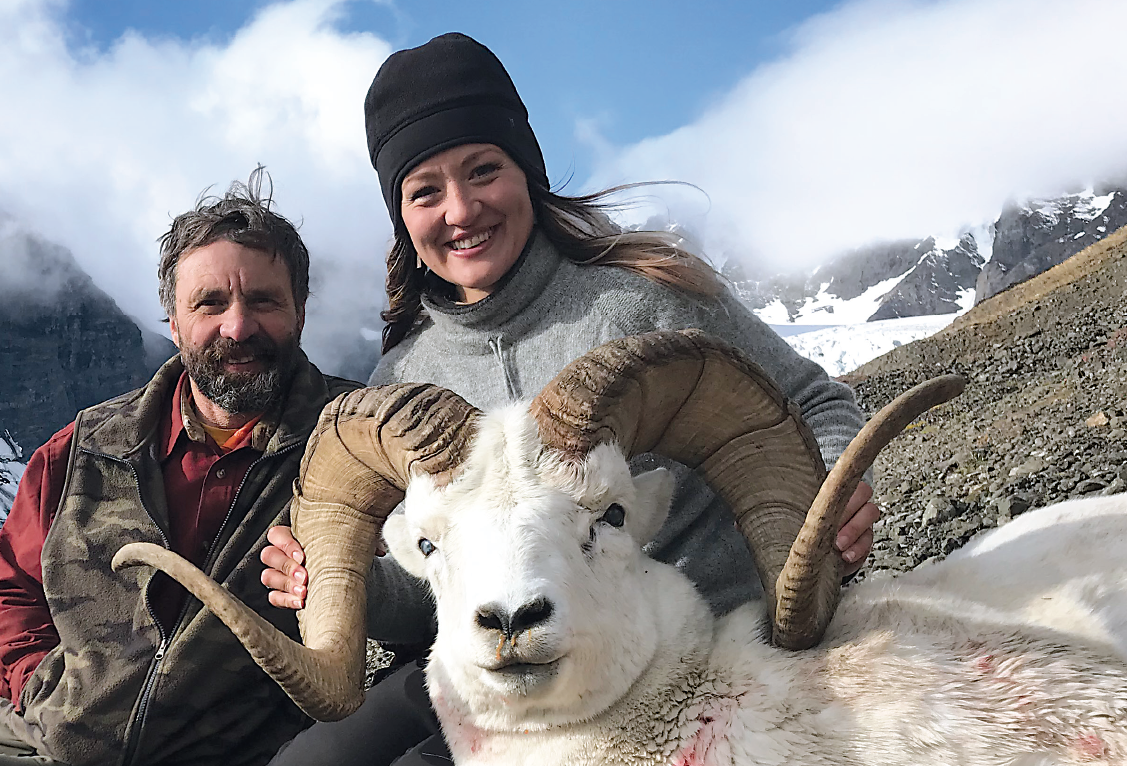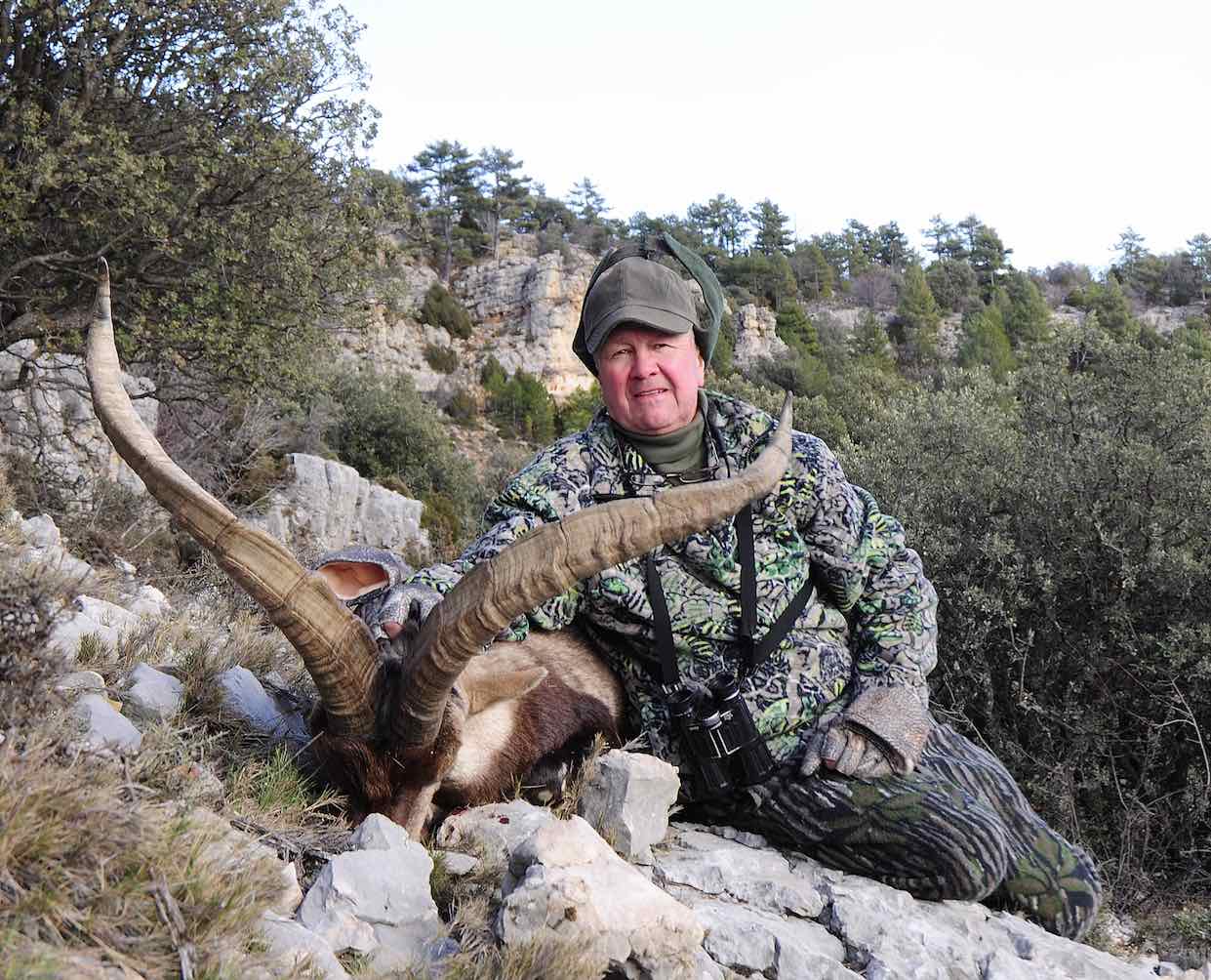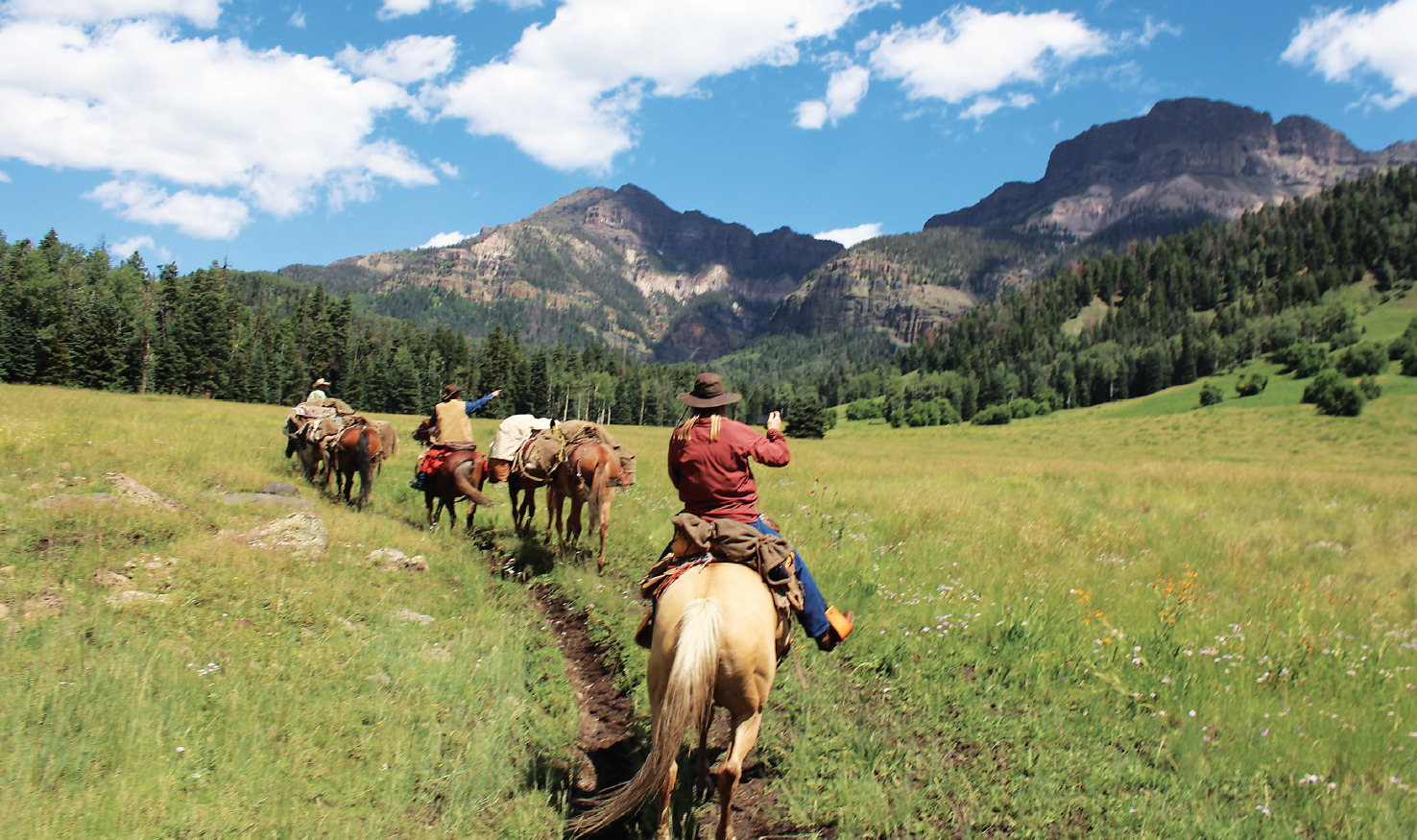Your first encounter with a mountain nyala will stay with you forever. It may even haunt you.
A soft mist rises from the forest valley like a whisper from a forgotten memory. Colobus monkeys growl. A bushbuck barks. A snake eagle soars past sheer cliffs. The wind tickles your neck. Birds chatter from tree to tree. Under all that, another sound lives in the shadows. The sound of a hoof lightly touching damp grass. The sound of your nyala ghosting through the Bale Mountains of Ethiopia—ghosting through the place where dreams were born.
He is out there somewhere, hidden by the mist that in time you begin to despise.
Mountain nyala hunting revolves around glassing, and when the fog drapes over the mountain like a paste, time seems to freeze. But the days refuse to wait—they drift by like they never existed, without glassing the mountain, with only the company of your silent companions and the distant bark of baboons resting on exposed rock faces. You barely leave camp. You hardly hunt. But you face each new day knowing he is out there, your nyala.
When the fog clears and he steps into an opening, you plan to be there, and you plan to be ready. Sometimes, the mountain has different plans.
On the first day the fog smells like morning dew and because we cannot see, I listen, I smell, I dream. A wet, earthy scent lined with the freshness of a sunny meadow helps soothe the growing fear that mountain nyala are slipping through the forest all around us. A bushbuck’s distant call reminds me of hope, and a pair of black-winged lovebirds flutters by close enough that I almost convince myself the fog has benefits.
Then, something happens on that first morning, the fog lifts and the air clears and we can see for miles—we can glass.
We find a bushbuck high on a green slope, so far away he appears small in the binos. He stares at us for a long time, unmoving, unwilling to believe we do not pose a threat. A warthog wallows in the deep valley below the hundred-foot cliff at our feet. I push back a few more inches before stretching out to catch a glimpse of the warthog. A small opening and a gathering of water. I expect a nyala to join the pig. It never does. Instead, the boar barrels into the shadows and leaves silence behind.
We sit, our elbows resting on our knees, our eyes growing weary from the chocolate-colored form under a canopy of trees we convince ourselves is more than a shadow. It never moves.
We search the same slope we searched five times before, stopping at the same dark images, the same shadows. And then Jason says, “There.”
It’s so quiet, I question if I heard it. I glance toward him. He has not moved. His eyes are sucked into the rubber eyepieces. Then, without turning toward me, he says, “Do you see it? The female there. Looking right at us.”
“I got her,” Rich says.
“Yep.” Scott picks her up as well.
I’m last, but when I see her, only 150 yards across the first valley, I hold my breath. She’s staring at us. We’re staring at her. Nobody moves. I no longer hear the baboons or the wind or even the silence. It happens like that when you first see a dream. The world pauses for an immeasurable moment. A pure, fleeting moment. You forget your companions. You forget how you ended up on the side of that mountain, and all the events that led up to it. You forget the mist and the rain and the beauty around you. It’s just you and a creature surrounded by myth and lore and magic. And you know that brief first encounter will stay with you forever. It may even haunt you. When time resumes, you are caught somewhere between what you want it to be and what it is.
You want it to be lasting. You want a heavy-chested bull, with spiraling horns like a proud chief’s staff, to appear in the shadows. You want that burn to rise from within your chest as the bull steps into the clear.
The female watches us as we search the undergrowth with our eyes, hoping for a leg or a horn or an eye or a tail—anything to confirm she is not alone. She stares long enough that if there had been a bull, he slipped away without notice. The fog pushes back in thin waves, leaving a subtle haze over our female, but not hiding her completely. Then, she is gone.
During the next few days the mist presses down on the mountains, pushing us into the valleys where we hunt warthog and bushbuck and hyena, where we hold on to the hope that the fog will rise, where we gaze up into the shrouded mountains and imagine a nyala bull moving through the forest with such grace and beauty that it almost drifts as part of the fog.
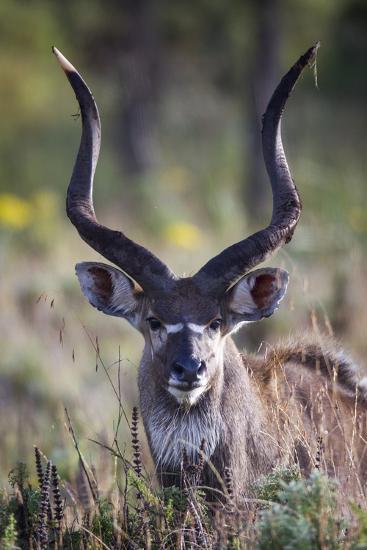 He is out there. We know he is. And we are left in the valleys to stare into the forested slopes and dream. We hunt the low ground, unconvinced the nyala venture this far down despite Jason ‘s assurance they do.
He is out there. We know he is. And we are left in the valleys to stare into the forested slopes and dream. We hunt the low ground, unconvinced the nyala venture this far down despite Jason ‘s assurance they do.
Jason, son of a Greek Cypriot professional hunter in Ethiopia and a former Miss Colorado, can run multiple Ethiopian camps during the hunting season and still fit in as one of the guys during a Midwestern wedding reception in a refurbished barn because he has lived both those lives since he could walk.
At 12, his father, renowned PH Nassos Roussos, handed him a rifle and said, “I think it is time for you to shoot an elephant.”
With all the confidence an adolescent boy could dig up, Jason, accompanied by a trusted tracker, but without his father, marched into the rain forest. He returned an elephant hunter.
That need to push himself, to prove that anything is possible through hard work and perseverance, stayed with him. And in January of 2011 he and Nassos became the only father and son to have both won Safari Club International’s Professional Hunter of the Year Award.
“We see nyala down here quite often,” he says. A few moments later, I see him glance into the high country. He wants to be up there. We all do. Instead, we shoot warthogs and photograph bushbucks and try to will the fog away.
The one thing Jason cannot control boxes us in and confines us to a place where our relationships evolve—brothers become friends, brothers-in-law become blood, and professional hunters become brothers.
The fog closes in around us, the nyala roam unseen through forest and shadow and a freedom that exists only in wild places. And though we cannot help but feel a little cheated, we laugh and smile and even shed a few tears. The mist may hide our nyala, but it allows us to see each other. Often, the best gifts come when we least expect them and feel like misfortune. Too often, we fail to realize them as blessings until long after they have been given.
On the day I leave the sun shines and follows Scott, his wife, Jessica, and me during a ten-hour drive to Addis Ababa. We stop on the road at The Bale Mountain National Park and watch nyala bulls feeding in the open. But it is not the same. These nyala seem to have lost much of what makes them wild. They look at us with indifference or curiosity at best.
A truly wild bull, emerging from the shadows, from the fog, would hold a moment before exposing himself and when he did it would be brief. And we would question if it had been real. But here, in the park, with big diesel trucks rumbling by and warthogs feeding under power lines, the moment loses some of its mystery. I focus on one bull and watch the way it moves, still graceful and stately, yet cannot help but feel as if I am watching a lie.
The females on the mountains moved with a cautious confidence—their wildness unquestioned. These bulls, old and heavy, feed without care, never looking back to inspect movement in the trees or even pricking an ear to pinpoint a sound, subtle or otherwise. We watch and then we pile into the vehicle and drive eight more hours to Addis Ababa.
We pass colorful churches and mosques, many only a few miles apart. Without fail, our driver crosses himself whenever we pass a Christian church, and I remember the day Scott shot his warthog. The Muslims in our hunting party refused to field-dress or even ride in the same vehicle as the unclean animal. Our driver now and the men of that afternoon work closely together every day, devoutly holding true to their beliefs while respecting the beliefs of others. I realize then that hope lives, and we would be wise to embrace it when it drifts through our lives.
A few days after our return to the States where nyala only ghost through my dreams, an email pops into my inbox:
Rich got his nyala!
I lean back and smile. My brother experienced one of the world’s great game species as it stepped into the open at the perfect moment. I close my eyes and I can see the mountain and the mist and the promise of a bull slipping through the shadows of the forest. I wonder if my mountain nyala will remain a dream. I wonder if it’s better that way.
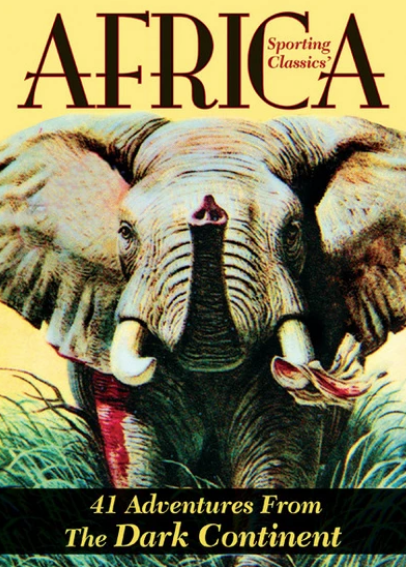 Sporting Classics has compiled this remarkable anthology showcasing the best African adventures published in our award-winning magazine.
Sporting Classics has compiled this remarkable anthology showcasing the best African adventures published in our award-winning magazine.
Ruark, Capstick, Roosevelt, Markham – the legends in outdoor literature are all here, sharing their stories of deadly encounters with dangerous game, of bizarre run-ins with witch doctors, gorillas and man-eaters, of safaris into the uncharted wilds of deepest Africa.
Illustrated by world-renowned artist Bob Kuhn, AFRICA features more than 400 pages of unforgettable stories by some of the finest professional hunters and writers of sporting adventure. Buy Now

